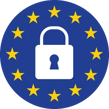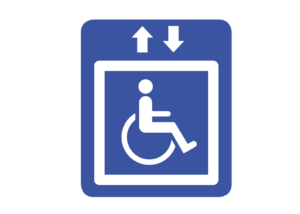What is the Ethics Channel?
More information (in Spanish) on the online prevention system
Which situations and incidents can be reported through the Whistleblowing Channel?
- Any acts or omissions which may constitute infringements of European Union law.
- Acts in breach of corporate tax rules or practices whose purpose is to obtain a tax advantage that distorts the Corporate Tax (Impuesto sobre Sociedades).
- Actions or omissions that may constitute a serious or very serious criminal or administrative offence, in particular those involving financial loss to the
- Treasury (Hacienda Pública) and Social Security.
- Infringements of labour law in matters of occupational health and safety, without prejudice to that which is established in the relevant, specific regulations.
What do I have to do when I receive a report from this Ethics Channel?
In the event of a complaint, the action protocol that has been decided must be initiated, within the timeframe that has been set. Acknowledgement of receipt must be sent and the investigative actions to be carried out must be initiated and recorded. The platform itself also contains a log of all the actions and modifications that are made within it.
Once the facts have been investigated, decisions must be taken based on the conclusions reached during the investigation.
Who can make a report through the whistleblowing Channel?
- public sector employees
- employees in both the private and the public sector
- self-employed persons who have obtained information on offences while working for clients.
- shareholders, partners and persons belonging to the administrative, management or supervisory body of a company, including non-executive members.
- any person working for or under the supervision and direction of contractors, subcontractors and suppliers.
- former employees
- volunteers, interns, and trainees, whether or not they receive remuneration.
- pre-employees, even if they have not yet started the employment relationship if they have obtained information during the selection process or pre-
contractual negotiation.
- legal representatives of the employees in the exercise of their duties to advise and support the informant.
What or who does the whistleblowing channel protect?
The whistleblower, as well as third parties attending the proceedings or related persons such as colleagues or relatives of the whistleblower who may suffer retaliation, or even legal persons with whom the whistleblower works or is linked to through an employment relationship or significant involvement, shall be protected when:
(a) they have reasonable grounds to believe that the information referred to is true at the time of the communication or disclosure, even if they do not provide conclusive evidence, and such information falls within the scope of the law,
(b) the communication or disclosure has been made in accordance with the requirements of the law.
The following are expressly excluded from protection:
(a) Information contained in communications that have been inadmissible by any internal information channel or for any of the causes provided for in Article 18.2.a) of the relevant law.
(b) Information linked to complaints about interpersonal conflicts or affecting only the informant and the persons to whom the communication or disclosure refers.
(c) Information which is already fully available to the public or which constitutes mere hearsay.
(d) Information which relates to acts or omissions not covered by Article 2 of the law.
How should I protect the anonymous whistleblower?
Acts constituting retaliation, including threats of retaliation and attempts to retaliate against persons who make a communication under this law are prohibited.
Retaliation means acts or omissions that are prohibited by law, or that directly or indirectly result in unfavourable treatment that places the persons subjected thereto at a particular disadvantage compared to another person in the employment or professional context, solely because of their status as whistleblowers, or because they have made a public disclosure.
Retaliation includes but is not limited to:
- Damage, including reputational damage, or financial loss, coercion, intimidation, harassment or ostracism.
- Negative evaluation or references regarding working or professional performance.
- Blacklisting or dissemination of information in a particular sectoral area which hinders or prevents access to employment or the contracting of work or services.
- Refusal or cancellation of a licence or permit.
- Refusal to train.
- Discrimination, or unfavourable or unfair treatment.
- And, unless these measures were carried out as part of the regular exercise of managerial power under labour legislation or the relevant public employee statute, due to circumstances, facts or accredited infractions, and unrelated to the submission of the communication, the following will also be considered retaliation:
- Suspension of the employment contract
- Dismissal
- Termination of the employment or statutory relationship, including non-renewal or early termination of a temporary employment contract once the probationary period has ended, or early termination or cancellation of contracts for goods or services,.
- Imposition of any disciplinary measure
- Demotion or denial of promotion.
- Any other substantial modification of working conditions
- Failure to convert a temporary employment contract into a permanent one, if the worker had legitimate expectations that he/she would be offered a permanent job.
When am I required to have an anonymous whistleblowing channel?
Companies with more than 50 employees are required to have an anonymous whistleblowing channel or "anti-corruption channel" as of the 31st of December 2023.
Example of a compliance whistleblowing channel
Do you have any queries?
Check out our example of a whistleblower channel here
Types of compliance reporting channels










.png?width=96&height=96&name=acoso%20igualdad%20(1).png) Sexual Harassment Reporting Channel
Sexual Harassment Reporting Channel Moral Harassment Reporting Channel
Moral Harassment Reporting Channel


